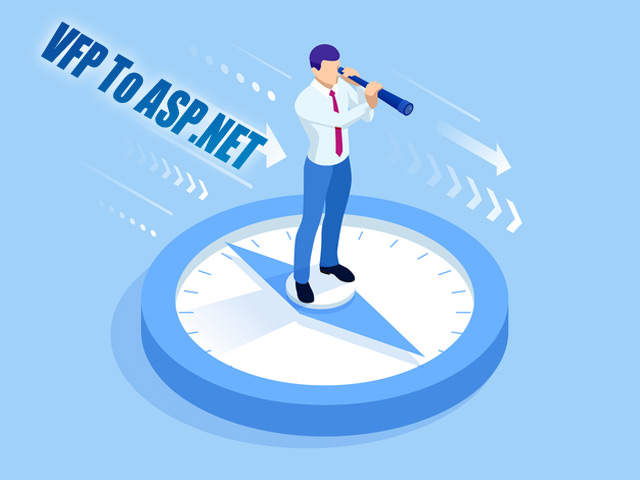Visual FoxPro (VFP) has been a popular programming language for enterprise development since the 1990s. However, with the evolution of cloud technology and emerging needs for application security, data privacy, performance, robustness, device interoperability, and data regulatory requirements, VFP applications have become obsolete. Businesses relying on VFP applications often find their critical functions dependent on a vulnerable technology.
Microsoft has ended support for Visual FoxPro, meaning there are no more update patches for security, stability, or enhancements. This leaves current VFP applications vulnerable to security threats. Businesses face challenges maintaining a qualified pool of VFP developers, as new programming platforms attract more interest from professionals.
It becomes inevitable for businesses to pursue Visual FoxPro migration to meet market needs. A common approach is Visual FoxPro to .NET migration, which involves modernizing the application by converting the codebase to the .NET framework. Teams can convert FoxPro to .NET to leverage the robust, secure, and feature-rich .NET ecosystem.
By investing in a Visual FoxPro to .NET migration project, companies can breathe new life into their mission-critical applications. The .NET platform enables developers to enhance the migrated application with modern features, improved performance, tighter security, and integration with other systems. A well-planned VFP to .NET migration lays a strong foundation for future growth and aligns the application with current business requirements and IT standards.


When considering a FoxPro or Visual FoxPro (VFP) migration, transitioning to .NET is one of the best options. The Microsoft .NET platform is now cross-platform, supporting Windows, Linux, and macOS, making it even more versatile for building web-enabled applications. .NET is ideal for developing applications for Windows, Windows Server, Microsoft Azure, and XML Web services, as well as modern front-end UI frameworks like Angular and React.
With a low total cost of ownership, flexibility for rapid application development and modifications, robust SQL database integration, and ease of deployment, .NET is suitable for enterprise businesses of all sizes. Visual FoxPro’s relational database can be seamlessly ported to Microsoft SQL Server, ensuring a smooth conversion from FoxPro to SQL Server. Additionally, .NET’s compatibility with Angular and React enhances the development of responsive, dynamic user interfaces, providing a comprehensive and modern solution for your migration needs.
Macrosoft specializes in migrating Visual FoxPro to modern distributed architecture applications. ASP.NET Web API provides an interface to connect with any modern UI framework, such as Angular and React. This combination is ideal for building large web applications that deliver the same user experience as VFP desktop applications. Macrosoft leverages modern UI control libraries to ensure excellent user experience, ease of use, and adherence to contemporary UI standards. This approach allows us to create robust, scalable web applications that meet the demands of today’s users while preserving the familiar functionality of legacy VFP systems.


Visual FoxPro and C# are two platforms not aligned in any way for an automated conversion or migration. It is not possible to use a commercial tool to convert VFP code to C# and if something as such existed, the output would not provide any business value and would be a waste of effort. But it is not impossible to convert VFP to .NET. The right way to convert VFP to C# is to implement business requirements in a C#.NET application by either using the same interface as the legacy application (known as apples-to-apples migration) or a complete rewrite, which gives the businesses the flexibility to enhance their applications to meet the needs of modern business environment. Macrosoft’s .NET team of experts specialize in C#.NET application development and best practices. Rather than emulate or convert legacy code style in the new application, our team works with client teams allowing automation and customization at every level.